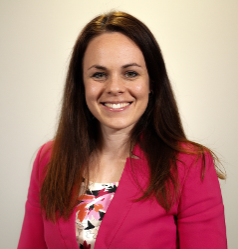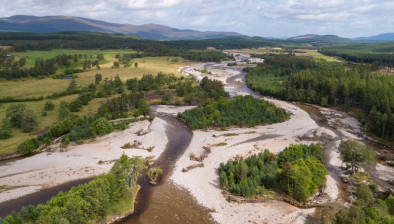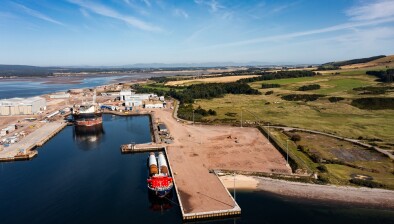New affordable housing schemes discussed at Cairngorms Housing Summit

Kate Forbes
Business leaders, public sector and community representatives came together yesterday to discuss the housing crisis in Badenoch & Strathspey with Kate Forbes, the Highland MSP who is also cabinet secretary for finance and economy, and Shona Robison MSP, cabinet secretary for social justice, housing and local government.
The summit at Macdonald Aviemore Resort and led by the Cairngorms Business Partnership brought together some of the significant employers in the area and leaders from Highland Council, Cairngorms National Park Authority, Highland Housing Alliance, Communities Housing Trust, government officials, Highlands and Islands Enterprise and representatives of the local community.
The summit discussed work underway to help people, who want to live in, work in and care for the area, find homes.
Ms Robison, who opened the summit, commented: “Good quality, affordable housing is essential to help attract and retain people in Scotland’s remote and rural communities. As part of our £3.4 billion Affordable Housing Supply Programme we have delivered more than 6,000 affordable homes in rural and island communities between 2016-17 and 2020/21.
“Building on this, we are now working to deliver 110,000 affordable homes across Scotland by 2032, of which 10% will be in our remote, rural and island communities. This will be backed by a Remote, Rural & Islands Housing Action Plan – we now want to engage with community organisations and those in the public and private sector to ensure it delivers for people in these areas.”
The results of a recent business housing demand survey, conducted by 56 Degree insight, were released at the summit. The results found that:
- Two in three businesses state the lack of affordable housing has inhibited their ability to recruit new staff (68%)
- 39% indicated that this was having a ‘major impact’ on their business
- Over half of the businesses (59%) expected the issues to worsen if no action was taken
The meeting heard that, right now, there are 180 vacancies in Badenoch and Strathspey listed on the Indeed website alone. Survey results suggest that around 50 of these will not be filled due to a shortage of suitable homes.
The survey was commissioned by Highland Council and the Cairngorms Business Partnership. The Scottish Government, the National Park Authority and the Highland Council have undertaken to take the results into account when assessing housing needs analysis for Badenoch and Strathspey and therefore funding and allocations for public sector supported housing.
The summit also discussed an innovative scheme being led by the Cairngorms Business Partnership (CBP) to improve the prospects for local employees looking to rent homes in Badenoch and Strathspey. In a pilot partnership with Highland Council and the Highland Housing Alliance (HHA,) with support from Highlands and Islands Enterprise, the CBP will establish a not for profit, business-led, organisation that will offer rent void guarantees to HHA and in return properties will be allocated based on local employment needs.
The initial pilot for 4 homes in Aviemore is expected to be available for occupation in summer 2022.
Commenting on the scheme, Mark Tate, chief executive of the Cairngorms Business Partnership, said: “The lack of affordable homes for people who want to work in, live in and care for the National Park, has long been a problem. This past summer it has severely impacted business recovery. This pilot clearly demonstrates that businesses are prepared to make a contribution to help alleviate the problem and ensure new mid-market rent housing is available for people working locally. We very much see all of the work we are discussing here today as work that we can replicate across the National Park and can be useful for many rural communities beyond that.”
Bill Lobban, convener of Highland Council, local councillor and Aviemore resident, added: “The biggest issue facing our community is the provision of affordable housing. Our economy is almost exclusively tourism-based so we do need accommodation for tourists but we also desperately need homes for the local people who live and work here many of whom serve the tourists who come here in their droves. There has to be a balance and currently that balance has shifted far too far away from the provision of affordable housing and we must redress that balance as a matter of urgency.”
Finally, the summit heard from the Communities Housing Trust who have been commissioned by the CBP with support from HIE, about a longer-term ambition to develop a community of around 80 homes from short term seasonal worker accommodation to homes for people to build, buy, buy to rent and rent of varying sizes built around a community of local people; fitting for a National Park delivering economic, community and environmental sustainability.
This scheme has the ambition of keeping at least 80% of those homes for local employees and people who want to live, work and care for the area in perpetuity.
There then followed a positive discussion about how these schemes can be improved further and a commitment from all parties to build on these solutions in a way that allows them to be scaled and replicated across the National Park and further.
Xander McDade, convener of the Cairngorms National Park Authority, said: “The availability of affordable housing is an issue of profound importance to the communities and businesses of the National Park, something which is again coming across loud and clear from our consultation on the next Park Partnership Plan. Having recently increased the affordable housing requirement to 45% in key settlements, we welcome today’s announcements and look forward to working with partners on substantially increasing affordable housing as set out in the draft National Park Partnership Plan.”
Closing the meeting Ms Forbes commented: “I am delighted that the Housing Minister, Shona Robison, is spending time with businesses to seek to resolve this major issue.
“There are tools at our disposal, in terms of building and securing more housing, but we need to make sure it is the right kind of housing for those who are most in need.”

















